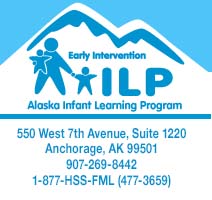
Developmental Checklist: 30 - 33 Months
Your baby is becoming a child. She will be less fussy and easier to manage in the months to come. She will be tasting, smelling, touching and enjoying her growing world. She will control her body while walking and picking up toys. She will show more skill in doing daily chores like dressing and eating.
Things Your Child May Do At This Age
- Jump about 8 inches from a standing position (broad jump)
- Open and close blunt nose type scissors
- Drink from a small cup or glass without help, although he may still spill a lot
- Drink from a cup using a straw
- Use the toilet without help, seldom having accidents, but for several months may still have wetting accidents - AVOID SCOLDING!
- Follow directions having no more than two steps, such as, “Find your shoes and get your coat.”
- Understand size concepts such as big and tall
- Begin to use many different parts of spoken language
- Add plurals “cookies”
- Prepositions “in the jar”
- Use modifiers “some, a lot”
- Use possessives “mine, his”
- Describe with adjectives “pretty”
- Begin adding “ed” to verbs to show past tense
- Draw horizontal and vertical lines and circles
Safety First!
- Supervise the use of blunt-edged scissors during creative play.
- Supervise playtime with other children.
- Teach him to wash his hands after using the restroom and before eating meals or snacks.
- Teach her how to safety turn the faucets on and off when washing her hands.
- Playground areas must be supervised.
- Children at this age do not yet use logical thinking even though they are developing more mature thinking.
- Always buckle your child in a car seat when riding in a car.
Nutrition Notes
Your child is good at deciding how much food she needs, but she doesn’t know what kinds of food she needs. That’s up to you!
Health Hints
- Immunizations at 30 months: Hepatitis A
Things You Can Do Every Day To Help Your Child Grow
- Bubbles are another way to teach your child about air and space. Bubble solutions may be purchased at a drug store or you can make your own.
- Homemade “Monster Bubble” Solution
2 cups water
1 cup of light corn syrup
2/3 cup dishwashing liquid
Mix together in a large bowl and stir gently.
- Counting skills increase at this age. Help your son or daughter practice counting. For instance, ask them to give you two objects
- Teach your children about air by blowing up balloons. (Supervise children closely if you do this; balloons can be dangerous. If a child sucks in a balloon, it can choke him or her.)
- Whenever possible, let your children do things on their own. Remember the words “I can do it!” and “Let me do it” are healthy signs of gaining independence.
- Give him cooking utensils, plastic tools, telephones and small suitcases to play with as well as clothes for pretending to be different people doing different jobs.
- Use positive statements such as “You can do it!” to encourage her to do things. When she does something well, tell her. Be specific. You could say, “I like the way you picked up your toys.”
- Read. Read. Read. Read to your child every day. Reading is a good time to give positive attention and affection. Introduce books that show traditional jobs: fireman, teacher, hair dresser, doctor, nurse, veterinarian, policeman or woman, mechanic, carpenter, store clerk – and many other careers.
